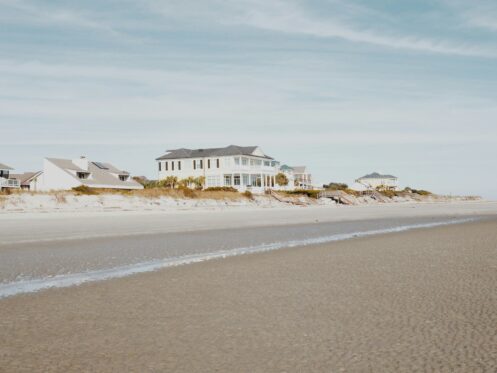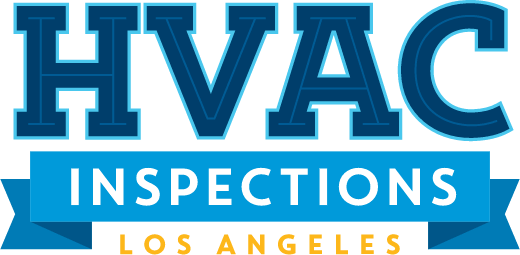The coastal environment of Hermosa Beach presents unique challenges for commercial HVAC systems. The presence of ocean air, filled with salt and moisture, can significantly impact the performance and longevity of these systems. Understanding these effects is important for businesses that depend on efficient and reliable HVAC systems to maintain comfortable conditions for employees and customers.
Understanding the Effects of Ocean Air on Commercial HVAC Systems
Ocean air can have significant negative effects on commercial HVAC systems, especially in coastal areas like Hermosa Beach. The high salt content in ocean air accelerates corrosion in metal components of the HVAC system. This can lead to weakened structural integrity and reduced lifespan of these critical parts. Over time, corroded parts may fail, resulting in costly repairs and potential system shutdowns.
Moisture from ocean air is another concern. Increased humidity levels promote mold and mildew growth within the HVAC system. This not only affects the efficiency of the system but also impacts indoor air quality. Mold spores can circulate through the building, posing health risks to occupants. The constant presence of moisture also makes the system work harder to regulate indoor temperatures, leading to higher energy consumption and utility bills.
Common Issues Faced by HVAC Systems in Coastal Areas
Commercial HVAC systems in coastal areas face several common issues due to the unique environmental conditions. Identifying these issues can help in addressing them effectively and maintaining system efficiency.
1. Corrosion: One of the most significant problems is corrosion caused by salt in the air. This can affect metal components such as coils, fans, and other essential parts, reducing their lifespan and efficiency.
2. Increased Wear and Tear: The constant exposure to salty and moist air can accelerate wear and tear of various components. This often results in more frequent repairs and replacements.
3. Air Quality Issues: High humidity levels can lead to mold and mildew growth inside the HVAC system. This affects the air quality inside the building, potentially causing health issues for occupants.
4. Reduced Efficiency: The combined effects of corrosion, wear, and mold can significantly reduce the system’s efficiency. The HVAC system may have to work harder to maintain desired indoor conditions, leading to increased energy consumption.
5. Mechanical Failures: The harsh coastal environment can also lead to mechanical failures. Components such as compressors, motors, and filters are more prone to breakdowns, causing interruptions in service.
Proper care and timely interventions are crucial in mitigating the impact of coastal conditions on your HVAC system.
Preventive Measures to Protect Commercial HVAC Systems
To safeguard your commercial HVAC system in coastal areas, implementing preventive measures is crucial. These actions help minimize the impact of ocean air and ensure your system runs efficiently for longer periods.
1. Regular Inspections: Schedule regular HVAC inspections to identify potential issues early. Our professionals can detect signs of corrosion, wear, and other problems before they escalate.
2. Protective Coatings: Apply anti-corrosion coatings to metal components of your HVAC system. These coatings create a barrier against salty air, reducing the risk of rust and deterioration.
3. Proper Ventilation: Ensure adequate ventilation in and around your HVAC system. Good airflow prevents moisture buildup, reducing the chances of mold and mildew growth.
4. Routine Cleaning: Regularly clean the coils, filters, and other components of your HVAC system to remove salt, dirt, and debris. This helps maintain optimal performance and improves indoor air quality.
5. Moisture Control: Install dehumidifiers to control moisture levels inside your building. Lower humidity levels can inhibit mold growth and improve the overall efficiency of your HVAC system.
Choosing the Right HVAC Inspection Company in Hermosa Beach
Selecting the right HVAC inspection company is vital to ensure your commercial system is thoroughly checked and maintained. Here’s what to look for when choosing an HVAC inspection company in Hermosa Beach:
1. Experience and Expertise: Choose a company with a proven track record and extensive experience in commercial HVAC systems. Experienced professionals are more adept at identifying and addressing issues specific to coastal environments.
2. Certifications: Ensure the company and its professionals are certified and licensed. Certifications indicate that the company adheres to industry standards and employs qualified technicians.
3. Comprehensive Services: Opt for a company that offers a wide range of services, including inspections, maintenance, repairs, and installations. This ensures all your HVAC needs are met by a single, reliable provider.
4. Customer Reviews: Read customer reviews and testimonials to gauge the company’s reputation and service quality. Positive feedback from previous clients indicates a trustworthy and competent service provider.
5. Transparent Pricing: Look for a company that offers clear and upfront pricing. Avoid companies with hidden fees or ambiguous cost estimates. Transparency in pricing reflects professionalism and integrity.
Conclusion
Ocean air presents unique challenges for commercial HVAC systems in Hermosa Beach. The high salt content and humidity levels can lead to corrosion, mold growth, and reduced efficiency. Understanding the effects of ocean air and the common issues faced by HVAC systems in coastal areas is crucial for business owners. By making informed choices and taking proactive steps, you can protect your commercial HVAC system from the adverse effects of ocean air.
For expert commercial inspection in Hermosa Beach, trust HVAC Inspections Los Angeles. Our professionals are dedicated to keeping your commercial HVAC system in top condition. Contact us today to schedule your inspection and ensure your system’s longevity and efficiency!






